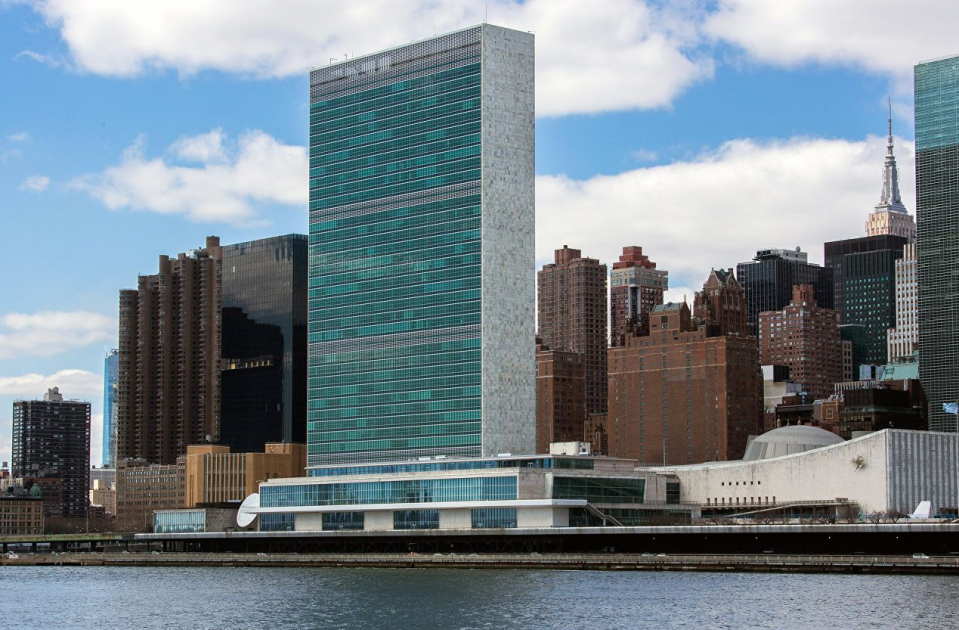Statement by Deputy Permanent Representative Anna Evstigneeva at an open VTC of UNSC members on the situation in Mali
Mr. President,
We thank Under-Secretary-General J-P.Lacroix for the briefing on the work of the United Nations Multidimensional Integrated Stabilization Mission in Mali and the situation in that country.
The situation in Mali remains tense. Extremists terrorize the local population, attack Malian military, the UN peacekeepers and other international armed forces contingents. Malian armed forces and MINUSMA’s Blue Helmets sustained heavy losses in March this year. Unfortunately, inter-communal clashes are still taking place in the central regions – despite all mediator efforts. In no small part, they are provoked by the activity of the extremists. According to the report by the Secretary-General, the previously calm southern regions of Mali now risk being destabilized.
We are deeply concerned over the situation in the border region of Mali, Niger, and Burkina-Faso – the ‘Liptako-Gourma triangle’. These days, militants carry out almost daily assaults there. Niger has suffered several appalling terrorist attacks. Russia conveys condolences to the peoples and governments of the affected states, whose citizens and peacekeepers fall prey to the terrorist activity in the region. We expect the authorities of both Mali and its neighbors to take even more energetic action to eradicate terrorism on their soil.
In the political domain, we welcome steps made by the government of Mali to establish transitional power institutions. The National Transitional Council commenced its work, an action plan and a roadmap were adopted in order to restore the constitutional order and convene the elections. Hopefully, all these pivotal measures will be implemented in due course within the 18-month transition period. Much will depend on whether the authorities and all the interested stakeholders (including movements ‘Platform’ and ‘Coordination’) continue dialogue on these issues.
We appreciate the efforts made by the African Union and ECOWAS in order to settle the situation in Mali. We unfailingly support such steps.
Stabilization of the situation in the country is directly linked to the strict implementation of the Algiers Peace Agreement by the transitional government and the other political forces. Hopefully, the constructive dialogue with groups-“signatories” on that matter will continue. Therefore, we welcome the outcomes of the meetings that the Agreement’s Monitoring Committee held in February and March this year. The process of disarmament, demobilization and reintegration of former combatants, and deployment of new units in the country’s north needs to accelerate. This should happen alongside the government reform. Also, conditions need to be created to ensure socio-economic recovery of the affected regions. The interests of all peoples of Mali, especially of its northern territories must be taken into account.
The humanitarian situation in Mali raises great concern. The share of people in need of food assistance has increased. The number of IDPs has grown by more than half over the recent year. These developments require appropriate response of the humanitarian agencies.
The situation in Mali is a key factor of the regional security. We expect that Malian armed forces will continue taking a meaningful part in operations of G5 Sahel Joint Force, and that 2020 and 2021 decisions of West African countries to boost action against terrorism will be put to life. We believe the idea of the AU Commission to deploy African Standby Forces in the Sahel is worth thorough consideration.
Close cooperation and coordination between Bamako and MINUSMA remains imperative. Peacekeepers must proceed with strict implementation of their mandate in northern and central Mali. We welcome MINUSMA’s assistance to the G5 Sahel Joint Force. In general, we share the proposed modalities of further work of the Blue Helmets in Mali that are contained in the UNSG roadmap. Obviously, the key tasks are help with restoring the constitutional order and implementing the peace agreement. Therefore, the presence of MINUSMA remains key for further stabilization. At the same time, the main responsibility for protecting the civilians, regaining control over the northern territories, addressing the urgent socio-economic and other problems rests with the Malians themselves.
In conclusion, we would like to express our appreciation to SRSG Annadif for his able leadership of MINUSMA in these challenging years. We wish to him every success in the new office. We welcome the appointment of Mr. El-Ghassim Wane as the new Special Representative of the Secretary-General for Mali. We reiterate our commitment to close interaction aimed at stabilizing the situation in Mali and in the region at large.
Thank you.
